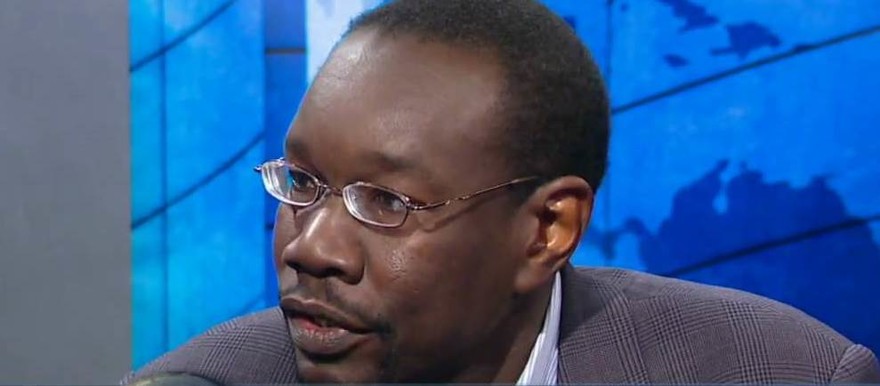6.35 million people in South Sudan, or 54 percent of the population, are at risk of hunger, according to three UN agencies. Despite the horrific reports of humanitarian disasters and human rights abuses, regional and international bodies have either forgotten or downplayed the looming political and humanitarian crisis in the country.
A year has passed since the signing of South Sudan’s peace agreement in September 2018. Despite claims of a reduction in violence, peace remains a mirage in South Sudan. President Salva Kiir and Riek Machar recently met in Juba to discuss how to resolve the outstanding issues for the formation of a transitional government now scheduled for November 12, 2019. Nothing substantive has come out of the meeting between the two leaders as disagreements over the details of the security arrangements and the number of the states, among others, remain unresolved.
The Intergovernmental Authority on Development (IGAD) and the United Nations Mission in South Sudan (UNMISS) seem to believe that peace is around the corner. To them peace entails the reduction of violence and the formation of any kind of transitional government. Despite the failure of the signatories to the peace agreement, including Kiir and Machar, to implement the provisions of the pre-transitional period, the IGAD, and in particular UNMISS have repeatedly claimed that progress has been made and there’s no plan B. There’s only a plan A – the stalled peace agreement.
Peace is neither the absence of war nor the reduction in violence. Martin Luther King Jr. distinguished between positive peace and negative peace. While positive peace focuses on addressing the underlying causes of the conflict, including injustices and inequalities, negative peace is concerned with the reduction of violence and tension where there is no outright tension and hostility. The former leads to the presence of justice, equality and unity, and the latter maintains the status quo that produced conflict in the first place.
Unfortunately, the IGAD and UNMISS have chosen to embrace negative peace in South Sudan instead of admitting the failure of the signed peace agreement to address the underlying causes of the conflict. Despite the reduction in hostilities, violence continues to flare in Upper Nile, Greater Bahr El Ghazal, and particularly in Equatoria region, which is considered the economic backbone of South Sudan. More importantly, the environment of fear, cattle raids, revenge killings, displacement, and sexual violence against women and girls especially in the rural areas continues to mark the daily life of civilians who find themselves trapped in these impoverished and neglected areas.
The region and the international community have often traced the genesis of the South Sudan’s crisis to the ethnic divisions of the country and the continued disagreement among its political elites, in particular Kiir and Machar. No doubt, South Sudan is ethnically fractured and its politics is deeply forged by its fractured society. But it is a mistaken proposition that peace in South Sudan can be restored by encouraging its political elites, who are responsible for its deepening humanitarian and security tragedy, to simply agree to reconcile and share political power. The tendency to emphasize ethnicity, encourage power sharing, and downplay the significance of inclusive institutions of government reproduces an archaic colonial mentality about South Sudan. It naturalizes its violence and conceptualizes the country as a ‘primitive’ society belonging to a pre-modern universe and hence, it does not deserve modern institutions of government run by the humanistic ideals of freedom, justice, and equality. The personalization of the crisis among the elites already in power thus undermines the critical importance of accountability and transparency and only encourages a culture of impunity and institutionalized corruption to persist and grow.
The Troika (the U.S, the U.K and Norway) seems to take an encouraging and welcoming position that goes beyond the euphoria of negative peace in South Sudan. In its recent statement, the Troika welcomes the recent meeting between Kiir and Machar, but also went further to specify what kind of government should be formed. It calls for a transitional, representative and national government “that respects human rights, empowers women and youth, and enables economic development through the peaceful return of refugees and internally displaced persons to their homes”. Unlike the IGAD and the UN, the Troika seems to call for a broader political participation that takes into consideration the presence of diverse South Sudanese political and civic groups. Time is running out and the feasibility of forming a transitional, representative and national government remains in question. If the parties fail to form such an inclusive government, does the Troika have plan B?
What seems clear is that the alternative is unsustainable. Pushing for the stalled peace agreement will perpetuate and legitimize the status quo, while those who have been victimized by the utterly inhuman violence manifested in gang rape, mass displacement, and ethnically targeted killings will continue to suffer. Hence, the focus on a negative peace – reduction of violence and formal hostilities is a recipe for more violence. I wonder what it takes for the international community in particular the IGAD and the UN to change course and embrace a positive peace to avoid outright war in South Sudan.
Amir Idris is a professor and chair of the Department of African and African American Studies at Fordham University, New York.
The views expressed in ‘opinion’ articles published by Radio Tamazuj are solely those of the writer. The veracity of any claims made are the responsibility of the author, not Radio Tamazuj.




